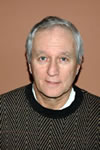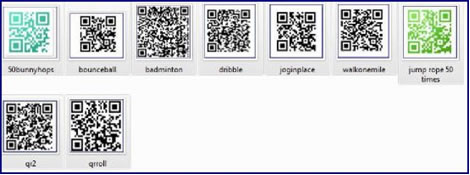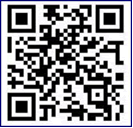Public Relations in Physical Education
written by Gerry
Cernicky; article contribution by Marilyn Laidlaw, James
Denman Middle School, California
 Living
in the northeast and near Pittsburgh it has been a rough winter
so far, and more winter appears to be ahead of us with tons
of snow shoveling waiting to be done somewhere, everywhere.
What does that have to do with a physical education related
article? Well, we have plenty of time to think before cabin
fever sets in and possibly depression. Not caused so much
by the snow, but about the state of physical education and
where it is headed. Budget cuts and fiscal cliff decisions
makes a person wonder about the health of PE, and also whether
a job can be found, or will there still be one? Living
in the northeast and near Pittsburgh it has been a rough winter
so far, and more winter appears to be ahead of us with tons
of snow shoveling waiting to be done somewhere, everywhere.
What does that have to do with a physical education related
article? Well, we have plenty of time to think before cabin
fever sets in and possibly depression. Not caused so much
by the snow, but about the state of physical education and
where it is headed. Budget cuts and fiscal cliff decisions
makes a person wonder about the health of PE, and also whether
a job can be found, or will there still be one?
Since the winter season provides many
opportunities for outdoor pursuits, what do you do if you're
stuck indoors? I'm talking about families, families with students
who have PE just once a week. I'm talking not about just the
winter season, but the rest of the school year and beyond.
Many forums, conventions, conferences, in-services and round-table
discussions are trying to find answers to this question -
how to save PE. Well, it may be debatable, but this concern
extends beyond the New PE, exergaming, technology and small-sided
games. I have always believed, and will stand by one main
focus - public relations.
Does the average person really know
what we do? How are we perceived? If you were on trial to
defend PE, what would be your defence? What plans have you
made to showcase your program? There are some fantastic teachers
and programs around the country that have taken proper steps
through grants, public relations, and informing the public
about what is happening in PE. They have invited school board
and community members to their schools, and demonstrated to
parents equipment that is available for students. These teachers
are trailblazers, and have found ways to sell their programs
and to prove that what they do is vital to the school district.
Information needs to be acquired,
and that means more than attending conventions and conferences.
It has become more difficult to attend these great local,
state, and national events, as many schools don't have the
funding for them in the budget or won't release teachers from
their school duties. Our pursuit should be to educate the
public, school directors, and the voting public about our
programs. It's also important that we help PE teachers, who
are indifferent to the new changes in PE, to find information,
to know where and how to look, and then to improve their teaching
and program for the betterment of their students.
Here are some resources to use which
may help cure
the winter blues. There are two Facebook
physical education sites that provide information sharing,
between teachers, of their programs and expertise in teaching.
PE1
and PE
Central involve teachers who are at the top of their game.
They present their programs and share their successes. There
are hundreds of teachers who have become involved in sharing
information in technology, web sites, National Institutes,
conventions, and philosophies of teaching. Included in the
sharing process is Naspe-Talk,
which is the new version of the old pe-digest that was instituted
in the 1990s. They are involved on Facebook too.
There are two more 'sharing' programs
that have evolved, and they are the LinkedIn
(AAHPERD) and Sports-Media
sites that continue to help and inform teachers of news, opportunities,
and skills that can be used to help PE take its rightful place
in the school curriculum. The Naspe
staff and Spark
have played a fundamental part of this education process with
valuable teaching techniques, webinars, and grants. Now, we
need to stand on our soapboxes, sell what we do, and hope
that some obstacle doesn't impede our progress. Verizon says,
"Can
you hear me now?" and if your voice gets heard, then
it may help pave the way for your colleagues and future teachers
in our field.
Here are some examples that can be
used to 'PR' what we do and to inform a puzzled and un-knowing
public. Try writing articles in newspapers, periodicals, and
on educational web sites that highlight the need for physical
education. It all starts with the first step, which will provide
a stepping-stone for further information of the need for physical
education.
These articles were posted at the Examiner
web site, and is a way to spread the word to people who aren't
in the PE field. We have to take that extra step and run with
it until the non-PE world gets the message. Being retired
and forever fighting in the trenches, I will use any vehicle
to fight to save our craft. Volunteer to be a writer and sneak
in articles about PE and Health. Who knows? Maybe somebody
with clout can help us in this quest, and after reading an
article may finally realize that physical education is important.
One issue that seems to be a hot topic of discussion is sportsmanship.
It doesn't matter what level of play or age, as there are
countless acts of poor sportsmanship that need attention and
remedy. March 5, 2013, is International
Sportsmanship Day and a great way to encourage fair play
and share with players, coaches, parents, students and the
community. Here is a list of the worst sportsmanship moments
from 2012, and a sportsmanship blog.
Here are some random examples from the Facebook and LinkedIn
sites that have been shared by members:
The following is a contribution by a PE friend from California,
and it's shared information like this that helps inform others.
Q: Is it time to rebrand physical education?
It is long past the time to do so. Ever since NASPE established
the national standards, physical education resembles more
of an age-appropriate course in kinesiology or exercise physiology.
Sometime in the 1980s, many departments changed their name
from "Physical Education" to "Kinesiology."
The word "kinesiology" carries with it a certain
level of respect, as an "-ology" suffix denotes
a connection to science. Although it is just semantics, having
a degree titled "Kinesiology" versus "Physical
Education" sounds more elevated, with far more advanced
education attached.
In keeping with the greater depth at which we are teaching
our physical education students, I believe we should give
the class its true name: "kinesiology." This name
can be used for middle and high school purposes (secondary
education). I propose keeping the name "physical education"
for elementary school, as that is more accurate for younger
children. There is no reason for physical education not to
follow the examples set by the other core classes: using the
simplest title in elementary school, then a more accurate
title in secondary school. For example, in elementary school,
students learn "arithmetic," in middle school they
learn "math," and in high school they learn the
individual branches of study (algebra, geometry, trigonometry,
calculus).
I would like to see physical education recognized for the
body of study that it is: a study of how the body moves in
relation to different game situations, and how it develops
the skills necessary to improve performance. Perhaps seeing
the word "kinesiology" on their child's report card
might also get parents to take it more seriously.
Many schools have PE once a week, but there are ways to ensure
there is a carry over from the regular PE class, and a little
bit of creativity can go a long way. Electronic devices are
ubiquitous, and the available apps can be used to bridge that
gap from gym to the home. There are a number of choices that
track walking and running results along with health and nutrition.
Another example is QR (quick reference) codes, which are the
black and white squares that are posted in magazines, walls,
and places of business. By using a scanner app, the student
will be directed to a web site for information. The PE teacher
can use the codes in fitness calendars, circuits, or instant
activities. These apps are available on the Apple
or Android
operating systems.
The codes are a great way to explore and garner information,
and have fun, too. Jaunt on over to PE
Geek for some fantastic ways to use the codes. A superlative
app for scanning the codes is Red Laser, which can be found
at the Itunes
store. Walking and running apps that can be found at Itunes
are Sports-Tracker
and MapMyRun.
Of course, there is a plethora of other choices, but these
two apps seem to be more reliable, and there are updates to
fix any bugs. If you want to bring in health and nutrition,
the Fooducate
app will share information that rates grocery items with a
grade scale.
ACTIVITIES
Elementary- Middle School
QR Adventure: The class is arranged in a
scattered formation on lines on the gym floor. On a signal,
the students will walk, run, leap, or slide on the lines without
leaving the line position (Pacman). Make your own QR codes
at Visualead,
or for a colored version and more variety at Beautiful
QR codes. There are easy to follow directions, and all
it takes is typing text in a dialog box, then print it out,
and place on the gym wall or bleachers:

Print out the codes in various wall or bleacher places, and
place a smartphone(s) on a desk nearby. From there, the student
will scan the code and have to perform the task before re-entering
the activity. There are ways to get "caught" and
then have to perform the activity.
When the QR code is scanned, it's saved in the history folder
and there will be a text response to perform that task. Change
the type of movements often, and watch how the skills are
performed. Equipment should be in a place near the sidelines
to ensure all safety concerns. As an alternative, use this
as an instant activity on the lines with taggers, and if tagged
that person must perform the scanned task to return. Or, have
the taggers dribble a basketball, and tag with the non-dribbling
hand.
Fitness Calendars: Use the QR codes on assigned
days, as the students take home the calendars and perform
the tasks. The tasks will represent skills learned in class,
and the parents have to sign the calendar and return it to
the PE teacher. This is a great way to demonstrate what has
been done in PE class, and is an exemplary PR tool. After
one month, the calendars are placed in a box and two students
are chosen to receive a healthy treat from the school cafeteria.
Use the Fooducate
app, then type in the product to see what grade is given for
nutritional value. This may be used away from the classroom,
at the grocery store, to help families plan healthy meals.
 Give it a try!
Give it a try!
Beat the Clock: Place the QR codes on the
gym walls or bleacher area. There should be six lines of students,
which match up with the six codes. Choose one student to scan
the code, return to the group, and call out the task. Each
group leaves the area to where equipment is stored, preferably
near the sideline area. Time the class on how long it takes
to perform the QR task. Choose a new leader each time. Here
are examples: Scan the tasks ahead of time.
1. Jump over a line 25 times
2. Jump rope 25 times
3. Dribble a basketball or object 10 times
4. Throw and catch a ball off a wall 10 times
5. Walk like a crab for 15 steps in all directions
6. Pass a ball in a circle formation for (3) revolutions
After completing the task, the students must go back to their
starting position and sit down in order. Choose a new leader
each time, but keep the tasks at four chances, so the students
won't be able to guess what comes next. Assign the group(s)
to add their own total scores for the four chances. Use all
available equipment, such as a volleyball in lieu of a basketball,
or any type of ball, to toss and catch off the wall/ passing
task.
(back
to pelinks4u homepage) |




 Living
in the northeast and near Pittsburgh it has been a rough winter
so far, and more winter appears to be ahead of us with tons
of snow shoveling waiting to be done somewhere, everywhere.
What does that have to do with a physical education related
article? Well, we have plenty of time to think before cabin
fever sets in and possibly depression. Not caused so much
by the snow, but about the state of physical education and
where it is headed. Budget cuts and fiscal cliff decisions
makes a person wonder about the health of PE, and also whether
a job can be found, or will there still be one?
Living
in the northeast and near Pittsburgh it has been a rough winter
so far, and more winter appears to be ahead of us with tons
of snow shoveling waiting to be done somewhere, everywhere.
What does that have to do with a physical education related
article? Well, we have plenty of time to think before cabin
fever sets in and possibly depression. Not caused so much
by the snow, but about the state of physical education and
where it is headed. Budget cuts and fiscal cliff decisions
makes a person wonder about the health of PE, and also whether
a job can be found, or will there still be one?
 Give it a try!
Give it a try!